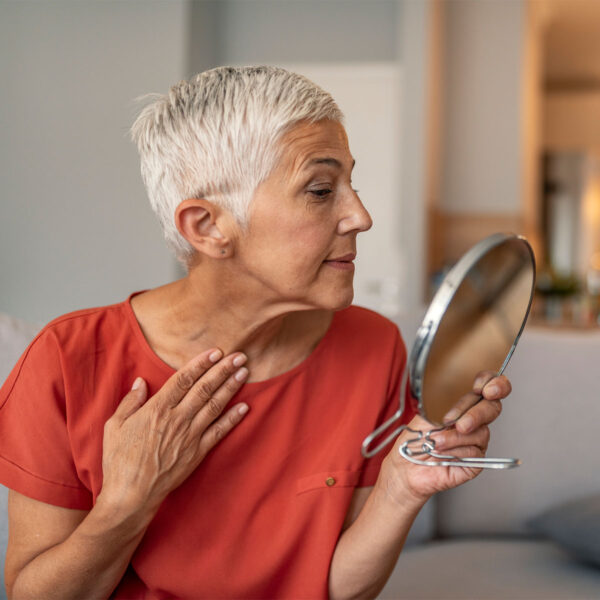
Your skin changes with age, but what exactly happens, and what can you do about it?
What happens to your skin as you age?
As you age, you will slowly notice that it becomes thinner, loses elasticity, and no longer looks as it once did. Your veins and bones can be seen more easily. Scratches, cuts, or bumps can take longer to heal. Other common skin issues arise as you age:
Dry, Itchy skin
Many older individuals suffer from dry spots on their skin, often on their lower legs, elbows, and lower arms. Dry skin patches feel rough and scaly. Some medicines can make even make your skin itchy. Because older people have thinner skin, scratching can cause bleeding that may lead to infection. Regularly use moisturizers to help supplement your skin.
Bruises
Older people may bruise more easily than younger people. It can take longer for these bruises to heal. Some medicines or illnesses may also cause bruising.
Wrinkles
Over time, the skin begins to wrinkle and lose its elasticity. Gravity can cause the skin to sag and wrinkle, and certain habits, like smoking, also can wrinkle the skin. While there is no proper prevention to this, you can improve the appearance of wrinkles through certain cosmetic treatments.
Age Spots
Age spots are flat, brown spots often caused by years in the sun. They are more significant than freckles and commonly appear on areas like the face, hands, arms, back, and feet. Laser treatments available can help reduce the appearance of sun-damaged skin.
Skin Tags
Skin tags are small, usually flesh-colored skin growths with a raised surface. They become common as people age, especially for women, and are most often found on the eyelids, neck, and body folds such as the armpit, chest, and groin. While harmless, skin tags can sometimes become irritated. Removal is an option, but it is not commonly covered by health insurance.
Skin Cancer
Skin cancer is one of the most common forms of cancer in the United States. Anyone of any skin color can get skin cancer. The leading cause is sun exposure. It doesn’t take an entire lifetime to develop skin cancer; it can happen at any age. Early detection is vital to successful outcomes. Schedule your annual skin cancer screening with your local board-certified dermatologist.





